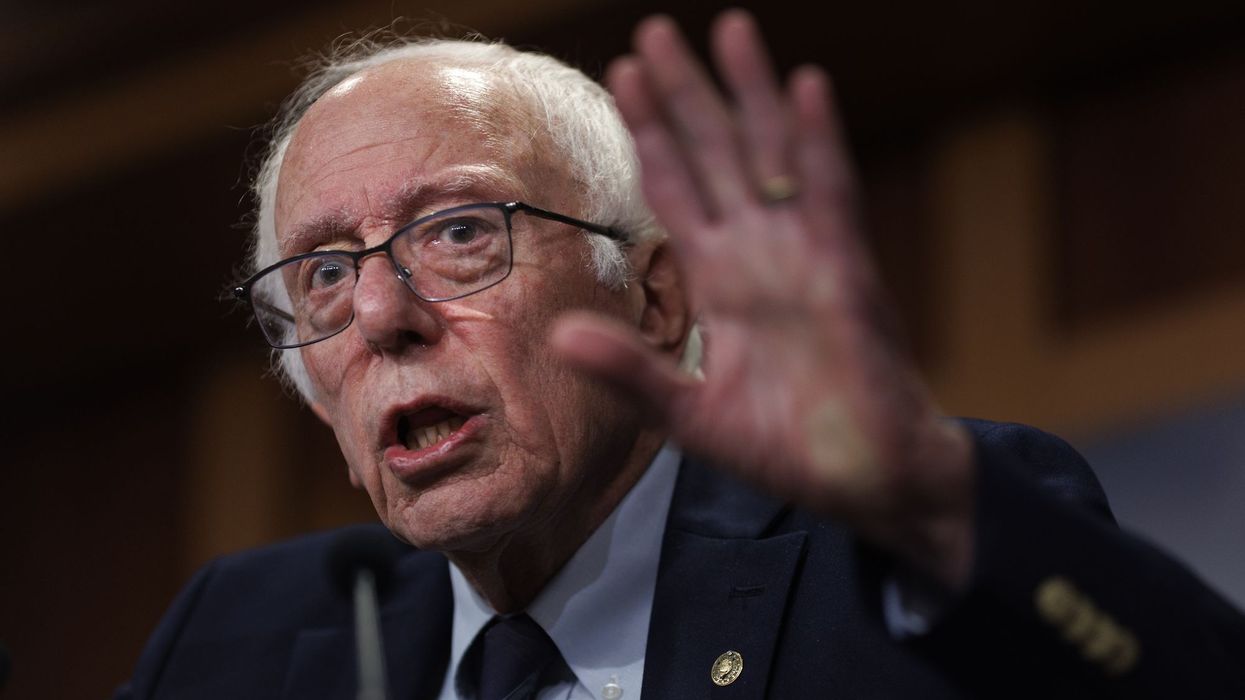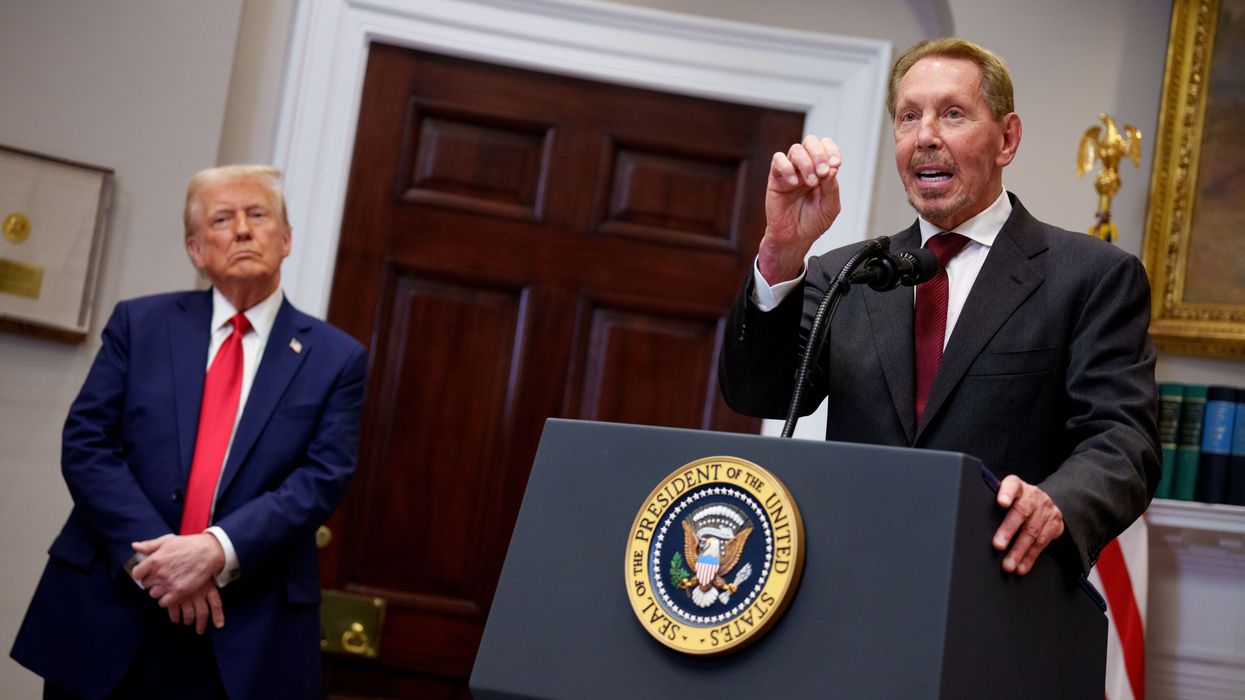August, 03 2016, 01:30pm EDT
Advocates Call for Meaningful Public Participation in Federal Regulation of Biotech
With the DARK Act signed into law, agriculture and public interest groups urge the White House to include the public’s input in its overhaul of the biotech regulatory process
WASHINGTON
Today, 24 farmer and public interest organizations called on the Obama Administration to conduct a new public engagement process as part of the overhaul of federal regulation of biotechnology known as the Coordinated Framework. The letter comes on the heels of a spate of dicamba drift incidents this summer that have caused widespread crop damage in Arkansas, Tennessee and Missouri. The highly volatile and plant-toxic herbicide dicamba is being applied to Monsanto's new genetically engineered soybeans known as Xtend, recently approved by the USDA.
The modernization process, kicked off with a memo from the White House in July of 2015, is supposedly focused on "improving the transparency, coordination, predictability and efficiency" of the regulation of genetically engineered (GE) products, while "continuing to protect health and the environment."
In their letter, the groups described how the public process used by the U.S. Department of Agriculture, the Environmental Protection Agency and the Food and Drug Administration has failed to engage the public in any meaningful way.
"Release of GE products -- and the pesticides they rely on -- into the market and the environment have the potential for real and immediate adverse impacts on public health, farmers' livelihoods, rural communities and consumers around the country," said Marcia Ishii-Eiteman, senior scientist at Pesticide Action Network. "Yet the public meetings conducted by USDA, FDA and EPA were in poorly chosen locations, badly publicized and clearly not designed to actually collect meaningful public input. The entire process was skewed from the start."
Specific concerns in the letter include:
- The agencies' last minute, and sometimes complete failure to publicize opportunities for public comments at public meetings
- The agencies' failure to hold any public meetings in the Midwest, Northern Plains and South, where many GE crops are planted, despite requests to add additional meetings.
"If these agencies really wanted to hear about the current experience people are having with GE crops, they needed to get input from people in regions of the country where they are grown," said Margot McMillen, a farmer in Calloway County, Missouri. "Only holding meetings in Washington, D.C.; Dallas, Texas and Davis, California does not constitute an open conversation with farmers and rural communities affected by GE crops."
The groups also pointed out that the failure to engage in a meaningful public input process seems to be indicative of deeper problems with the Administration's approach to updating the Coordinated Framework.
"President Obama just signed the DARK Act, which blocks state GMO labeling laws that people around the country worked for years to enact," said Judith McGeary, Executive Director of Farm & Ranch Freedom Alliance. "The least he could do at this point is to take these steps to ensure that farmers and consumers have a real voice in the Coordinated Framework process."
"The Obama Administration seems to be more concerned with speeding up the regulatory process than making it more protective of health, the environment, and the farm economy," said Lynn C. Wolfe, retired farmer and long-time organizer in North Dakota. "We need a total overhaul of the system for regulating GE crops and animals that takes a much more precautionary approach."
The groups urged the White House and the agencies to take several steps to rectify the failure of the public engagement process, including:
- Revising the scope of the Coordinated Framework to give explicit instructions that the purpose is to ensure the protection of the public good (e.g. health, livelihood, environment and well-being), and that GE regulations must weigh all potential consequences of new GE crops
- Holding additional public meetings in the Midwest, Northern Plains and Southern regions in states where GE crops are widely grown and where farmers and rural communities are likely to be directly or indirectly impacted by the biotech regulatory system
- Ensuring that the purpose of these meetings is to seek public feedback regarding those roles and what a revised regulatory system should include, and to adequately publicize these meetings.
"Instead of pandering to the interests of biotech corporations, the White House should be directing USDA, EPA and FDA to fulfill their responsibility to the American public and strengthen -- not weaken -- regulatory oversight of these technologies," said Wenonah Hauter, executive director of Food & Water Watch.
The letter was signed by Beyond Pesticides, Center for Food Safety, Dakota Resource Council, Farm and Ranch Freedom Alliance, Food & Water Watch, Food for Maine's Future, Grand Forks County Citizens Coalition, Missouri Rural Crisis Center, National Family Farm Coalition, National Organic Coalition, Northeast Organic Farming Association - Interstate Council, Northeast Organic Farming Association of Massachusetts, Northeast Organic Farming Association of New Hampshire, Northeast Organic Farming Association of New York, Northeast Organic Farming Association of Rhode Island, Northeast Organic Farming Association of Vermont, Organic Seed Alliance, Pesticide Action Network North America, Powder River Basin Resource Council, Rural Vermont, Texas Organic Farmers & Gardeners Association, South Agassiz Resource Council, Western Colorado Congress, Western Organization of Resource Councils.
PANNA (Pesticide Action Network North America) works to replace pesticide use with ecologically sound and socially just alternatives. As one of five autonomous PAN Regional Centers worldwide, we link local and international consumer, labor, health, environment and agriculture groups into an international citizens' action network. This network challenges the global proliferation of pesticides, defends basic rights to health and environmental quality, and works to ensure the transition to a just and viable society.
LATEST NEWS
‘No More Military Aid for Netanyahu,’ Says Sanders as Israel Ramps Up West Bank Takeover
"It’s not just Gaza," the senator said. "Netanyahu’s extremist government is supporting the violent annexation of Palestinian land in the West Bank."
Dec 22, 2025
As Israeli settlers escalate attacks on Palestinians in the West Bank as part of a furious state-backed annexation push, US Sen. Bernie Sanders said it was yet another reason to suspend military aid to the government of Prime Minister Benjamin Netanyahu.
"It’s not just Gaza," the independent Vermont senator wrote on social media Sunday. "Netanyahu’s extremist government is supporting the violent annexation of Palestinian land in the West Bank. This is illegal and immoral, and decades of American silence have enabled it."
"NO MORE MILITARY AID FOR NETANYAHU," he concluded.
Sanders was responding to a feature published in the New York Times that same day, which examined the rapid expansion of illegal settler outposts over the past two decades, and the further acceleration after October 7, 2023, when Israel’s more than two-year genocidal assault began in Gaza following a Hamas-led attack.
The report provides data from the Israeli activist group Peace Now, which found that in 2024 and 2025, Israelis built more than 130 new outposts in the West Bank.
Despite the fact that they are illegal under both Israeli and international law, the settlers constructing these outposts operate with the support of the Israeli military and government.
As the Times reports:
The unrelenting violent campaign by these settlers, that critics say is largely tolerated by the Israeli military, consists of brutal harassment, beatings, even killings, as well as high-impact roadblocks and village closures. These are coupled with a drastic increase in land seizures by the state and the demolition of villages to force Palestinians to abandon their land.
Many of the settlers are young extremists whose views go beyond even the far-right ideology of the government. They are not generally operating on direct orders from Israel’s military leadership. But they know the military frequently looks the other way and facilitates their actions.
In many cases, it is the military that forces Palestinians to evacuate or orders the destruction of their homes once settlers drive them to flee.
Just in 2025, the report says, settlers and the military have razed more than 1,500 Palestinian structures, double the annual average from before 2023. Since the war began, more than 4,000 Palestinians have been forcibly displaced from their homes.
Meanwhile, the Israeli government has also declared a record number of areas in the West Bank to be "state land," meaning that they are off limits to Palestinians and that Israelis can use them to build more settlements.
Far-right forces in the Israeli government have been overt about the intention of these settlements: to carve up the West Bank so thoroughly that a contiguous Palestinian state becomes effectively impossible. Netanyahu has often reiterated his position that under his watch, a Palestinian state will never be created.
In August, as the Israeli government approved a massive 3,400-home settlement project in the heart of the occupied West Bank, Finance Minister Bezalel Smotrich—himself a settler and one of the leading representatives of the far-right settler movement in Netanyahu’s cabinet—boasted that the project “buries the idea of a Palestinian state,” adding that “Every town, every neighborhood, every housing unit... is another nail in the coffin of this dangerous idea.”
On Sunday, Israel’s cabinet approved another 19 Jewish-only settlements across the West Bank, raising the total number to more than 200 in the territory, up from around 140 three years ago. Smotrich said with the new construction, Israel was “putting the brakes on the rise of a Palestinian terror state.”Until recently, the official policy of the US government has been one of opposition to settlements, even as their construction continued largely unimpeded.
During his second term, President Donald Trump has talked out of both sides of his mouth. While promising Arab leaders that Israel would not annex the West Bank as he sought to broker a ceasefire, his administration has often expressed tacit, and occasionally overt, support for settlement expansion.
UN Secretary-General António Guterres denounced the rapid expansion of settlements, saying it “continues to fuel tensions, impede access by Palestinians to their land, and threaten the viability of a fully independent, democratic, contiguous, and sovereign Palestinian state.”
In July, as reports of famine out of Gaza grew increasingly dire due to Israel's blockade of humanitarian aid, Sanders sponsored a Senate resolution to block $675 million in US weapons sales to Israel.
Though the vote was far from passing, 27 members of the Democratic caucus—a majority, for the first time—voted in favor. Sanders said it suggested that "the tide is turning" with respect to attitudes towards Israel's actions within the party.
In an AtlasIntel poll published on Friday, 62% of respondents said they opposed US financial support for Israel, compared with 20% who supported it. 50% of respondents said they "totally oppose" weapons to Israel, while just 9% said they "totally support" it.
Despite this, the most recent military spending bill, passed last week, provides another $650 million in military aid for Israel, up $45 million from the previous package, despite the implementation of a ceasefire in Gaza.
The bill also included an unprecedented measure requiring the executive branch to assess how the US can supply additional weapons to Israel to fill in "gaps" from embargoes imposed by other nations over the country's human rights abuses in Gaza and the West Bank.
Keep ReadingShow Less
'Threat to Media and Democracy': Trump Ally Larry Ellison Puts Up $40 Billion to Help Son Buy CNN Owner
"Yesterday we saw the Ellison-owned CBS kill an important news story for being too critical of Trump," wrote one journalist. "Now Ellison is making another move to try to win control of CNN."
Dec 22, 2025
Oracle co-founder Larry Ellison, an ally of US President Donald Trump and one of the richest men in the world, pledged on Monday to provide $40.4 billion to help finance his son's hostile bid to acquire Warner Bros. Discovery, the owner of CNN, HBO Max, and other major media assets.
The billionaire's personal financing guarantee was announced in a press release issued by Paramount Skydance, a company headed by David Ellison, Larry Ellison's son.
"Paramount has repeatedly demonstrated its commitment to acquiring WBD," David Ellison said in a statement. "Our $30 per share, fully financed all-cash offer was on December 4th, and continues to be, the superior option to maximize value for WBD shareholders."
Paramount launched its $108 billion effort to take over Warner Bros. earlier this month, days after Netflix and Warner Bros. leadership announced a proposed merger deal. Antitrust advocates have warned that either merger would be destructive for journalism, television writers, media industry competition, and consumers.
Paramount added Larry Ellison's personal funding pledge to its offer after Warner Bros. board members raised concerns about the initial proposal, pointing specifically to the absence of a concrete guarantee of the billionaire executive's backing. Larry Ellison's net worth is estimated to be around $243 billion.
"The ability to deal directly with Larry if there was an issue to close would be critical," Warner Bros. board chair Samuel Di Piazza Jr. told CNBC last week. "Otherwise closing might not happen."
News of Larry Ellison's direct intervention in Paramount's bid for Warner Bros. came amid mounting concerns over media consolidation into the hands of a few right-wing billionaires and the Trump administration's growing political influence at the nation's news networks.
Last week, TikTok’s Chinese owner signed a deal giving Larry Ellison's company and other investors an 80% stake in a newly formed US TikTok entity.
On Sunday, chaos and outrage erupted at CBS News after editor-in-chief Bari Weiss spiked a "60 Minutes" segment on El Salvador's CECOT prison shortly before it was set to air. Sharyn Alfonsi, the veteran "60 Minutes" correspondent who led the segment, accused Weiss of making a "political" decision to prevent the airing of a report that would have reflected badly on the Trump administration. Paramount Skydance is the owner of CBS News.
"It's hard to ignore that this happened just as Paramount's hostile bid for Warner Bros. was slipping away," The American Prospect's David Dayen wrote late Sunday. "Time to please the king again."
Journalist and media critic Jennifer Schulze warned Monday that "Larry Ellison is a threat to journalism and democracy."
"Yesterday we saw the Ellison-owned CBS kill an important news story for being too critical of Trump," Schulze wrote. "Now Ellison is making another move to try to win control of CNN."
Keep ReadingShow Less
'An Abject Failure': Economists Trash Trump's Disastrous Job Creation Record in Year-End Reviews
"The jobs aren’t coming back, the wages aren’t rising," one economist said.
Dec 22, 2025
President Donald Trump has justified his historically high tariffs on foreign goods by promising that they would lead to a boom in domestic manufacturing jobs in the US.
However, in year-end reviews of the US job market, three economists make the case that Trump's record on creating manufacturing jobs has been a massive bust.
Mike Konczal, senior director of policy and research at the Economic Security Project and a former member of President Joe Biden’s National Economic Council, argued in his personal newsletter on Friday that the Trump administration's efforts to reorganize the US labor market away from service sector jobs have completely failed.
In particular, he found that jobs in manufacturing, mining, and logging have all declined throughout the first year of Trump's second term, while jobs in construction have remained mostly flat after years of steady growth during former President Joe Biden's administration.
What's more, the administration's stated goal of opening up more jobs for native-born US workers by conducting mass deportations of immigrant workers has also flopped, as native-born unemployment has been higher in 2025 than in either of the last two years.
"The bleak irony is that even after sacrificing real prosperity to chase this 4chan-level political economy, they still won’t achieve their goal," Konczal concluded. "The jobs aren’t coming back, the wages aren’t rising, and family formation won’t be rescued by trying to rewind the labor market to a world that never existed in the first place."
Nobel Prize-winning economist Paul Krugman concurred with Konczal's assessment of the US labor market in an analysis published Monday in which he described Trump's record on jobs as "an abject failure."
Krugman argued that Trump's war on clean energy projects is almost certainly making the situation even worse by killing blue-collar manufacturing and construction jobs in the wind and solar industries.
"Trump has scrapped Biden’s green energy policies in favor of tariffs and fossil fuels," Krugman noted. "But it isn’t working. Instead, employment in 'manly' sectors has fallen since Trump took office."
Additionally, said Krugman, Trump's plan to use tariffs to bring back manufacturing jobs to the US was always destined to fail given the realities of how modern economies work.
"In the modern world nations mostly don’t sell each other completed consumer goods," he explained. "Instead, the majority of trade involves sales of goods that are used to produce other goods... What this means in practice is that tariffs, which raise the prices of those capital goods and inputs, raise the production costs of US manufacturers, in many cases making them less competitive with foreign producers."
Ball State University economist Michael J. Hicks, in a column published Monday by the Indianapolis Star, also pointed the finger at Trump's tariffs when explaining his failure to revive US manufacturing.
Hicks argued that the damage the president's policies have done to manufacturing won't be undone any time soon.
"The US is in the early days of a manufacturing contraction that will run through most of 2026, even if the tariffs are lifted today," he warned. "We should call it the deindustrialization of America. All of this flies in the face of the nonsensical claims of a manufacturing renaissance or onshoring that would bring factory jobs back to the US."
Keep ReadingShow Less
Most Popular


